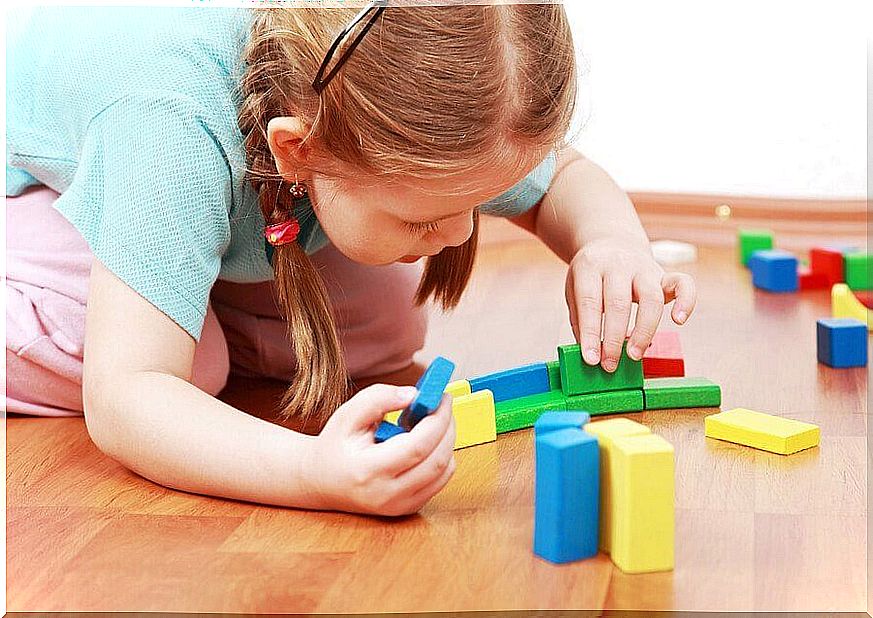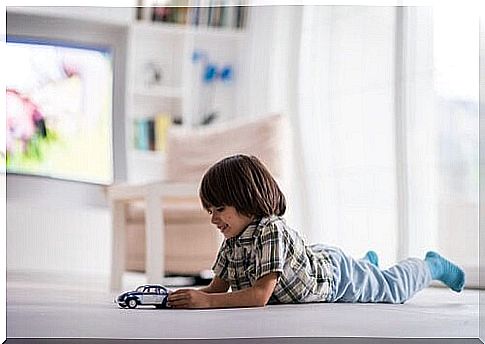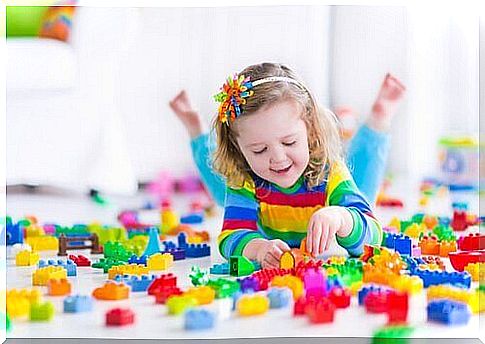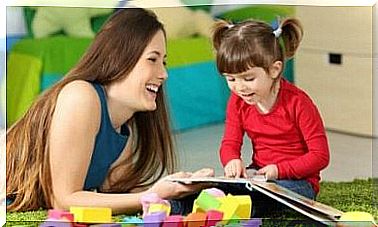Why It Is Good To Teach Children To Play Alone

Parents should encourage their children to play alone at home. By doing so, they will discover new skills and strengthen existing ones.
Learning to play alone is a fundamental tool in children’s cognitive development and is something that improves their independence and autonomy.
By encouraging children to do this, they can make their own decisions without fear of making mistakes. It also helps them to explore new worlds with their imaginations and fantasies.
However , playing alone all the time is also not good. This will limit their interaction with other children and hinder their adjustment and integration into society. There must always be a balance.
Learning to play alone benefits children on a personal level. Playing in a group helps them relate to others and develop their social skills and language.
Benefits of teaching children to play alone
Learning to play alone has many benefits for children, such as:
Independence
They learn to control their own world; they are independent and get used to new ways of relating to things and people around them. At first they will ask for help, but eventually they will get used to solving things on their own.
Decision
They try to do things themselves and sometimes it doesn’t work. As a result, they learn by making mistakes and looking for possible solutions. When they find those solutions themselves, they become more confident and their self-confidence increases.
It requires creativity and imagination
The child who plays alone enjoys exploring his own inner world by creating characters, environments and situations that take him to magical places. As a result, his imagination develops faster and expresses his dreams and ideas in the way he wants.

Shared and individual games
When a child plays alone, he does and says things that he may not dare to do to adults. By playing this way, he can figure out what works and what doesn’t. It is best to give him freedom and space, but without ignoring the activity he is doing.
You can use these games as an ideal opportunity to correct him and teach him about certain values.
Games played alone and with others can complement each other. Both are equally necessary for the proper cognitive and emotional development of children.
How can I help my children learn to play alone?
It’s best to start gradually. It is good for parents to play with their children for a while and then let them play on their own so that they get used to playing on their own.
Different types of games with blocks and puzzles are ideal to start with. If you start the game with your child, he will gain confidence and will quickly learn to play it alone.
You may have to call or answer an email, which is a good opportunity to let him play alone for a few minutes. If you tell him to keep playing until you get back, he can gradually become more independent.
You shouldn’t be gone for more than five minutes. Your child may feel abandoned and that is of course not the intent or purpose of the exercise.
From the age of 2 or 3, the child really likes to play alone and takes great pleasure in exploring the magical world that he has created.
When children are older, electronic games come into play: consoles, computers or tablets. These games can cause a lot of addictions, so you should only allow them to be used at set times.
For children and parents it is essential to find a balance between playing alone and with others. However, if we want our children to learn how to play alone, we should not prevent them from having fun with other people.

Tips to teach children to play alone
- The most important thing is to provide children with a place to play safely on their own.
- It is important that children have toys that are appropriate for their age. This improves their cognitive skills.
- Even if they’re playing alone, don’t lose sight of them. You never know when kids might need your help.
- You can only alternate playing with games with other people, just so they don’t become too dependent on a single activity.
- Children learn through imitation. That is why it is good for parents to play with them a lot, even if it concerns games that the child has come up with himself.
Like any other process, teaching children to play alone requires a lot of patience and discipline. It is good to want to share moments with our children at every stage of their lives, but we also need to understand that they need their own space to develop their skills.
Playing alone will really help children develop their independence, confidence and imagination.









